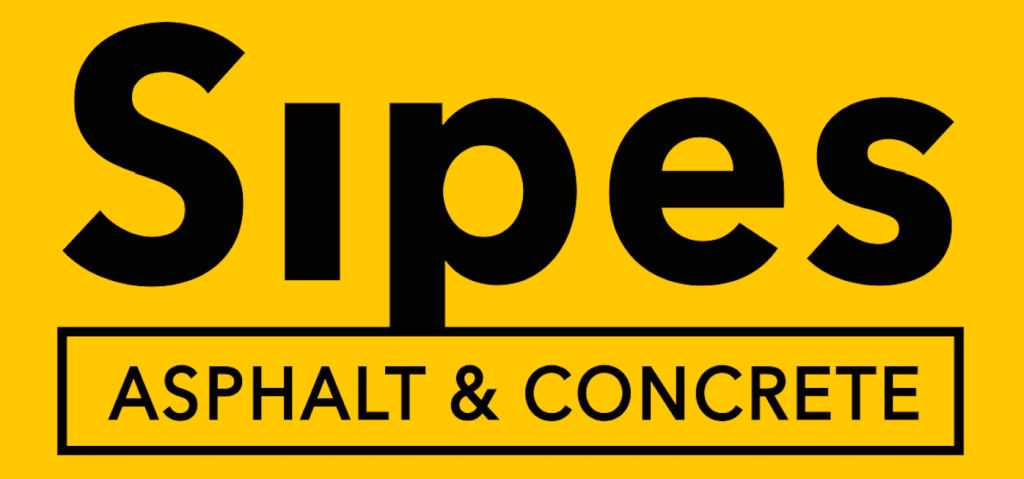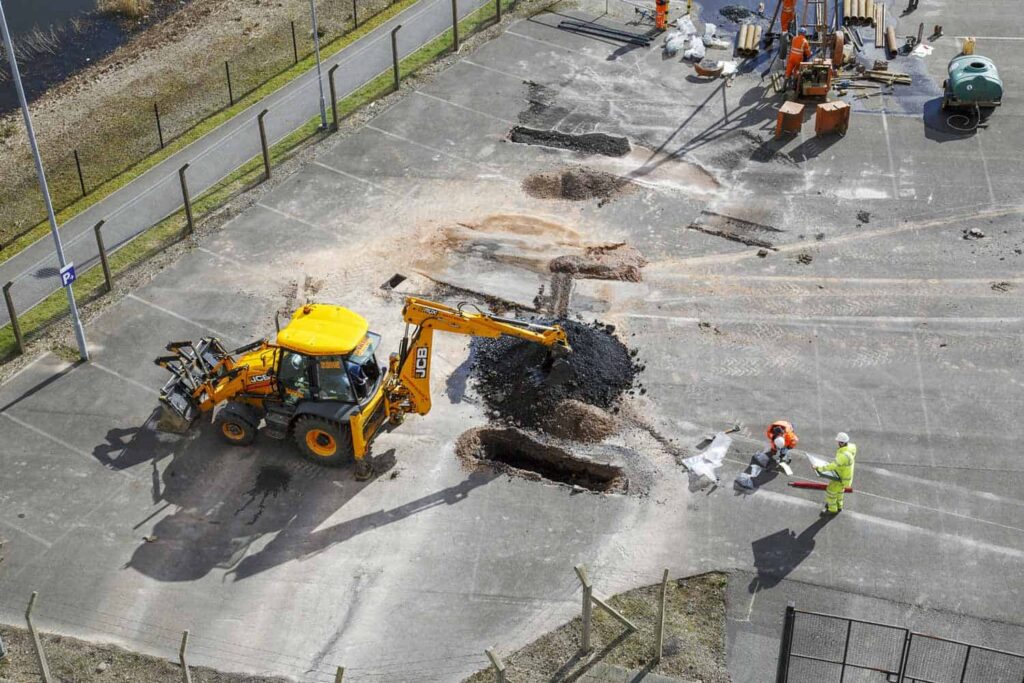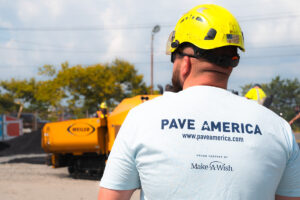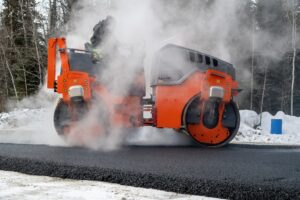Table of Contents
What Is an Asphalt Pavement?
Asphalt is a popular paving choice for residential and commercial properties due to its durability, affordability, and sleek appearance. Made from a mixture of asphalt cement, sand, and gravel, this surface is laid hot and compacted to create a smooth, weather-resistant pavement. Asphalt surfaces are known for their flexibility, allowing them to withstand freeze-thaw cycles and minor ground movements without cracking. Additionally, their dark color aids in faster snow melting during winter, making them ideal for regions with seasonal weather changes.
What Is a Concrete Pavement?
A concrete pavement is a durable and versatile solution made from a mixture of cement, water, sand, and gravel. Known for its strength, it can handle heavy loads and withstand various weather conditions, making it a popular choice for residential and commercial properties alike. Concrete pavement offers customization options, such as stamped patterns or colored finishes, allowing homeowners to enhance their curb appeal.
The Pros and Cons of Concrete Paving
Concrete’s Strength and Durability
Concrete is a popular choice for Indianapolis commercial paving contractors due to its undeniable strength and durability. It can handle heavy traffic loads from trucks and forklifts, making it ideal for:
- Warehouses
- Factories
- Loading docks
Longevity and Cost Efficiency
Concrete also boasts superior longevity, lasting up to 30-40 years with proper maintenance. When comparing the durability of concrete vs. asphalt:
- Concrete lasts longer, requiring fewer repairs and replacements over time.
- Despite higher upfront costs, it provides significant long-term savings, making it a smart investment for businesses seeking a low-maintenance solution.
Considerations for Concrete Installation
While concrete offers many benefits, it does have some limitations:
- Longer installation time: Concrete requires curing, which can take several days and may disrupt operations.
- Temperature sensitivity: Freeze-thaw cycles in Indianapolis can cause cracks over time, potentially compromising the pavement’s integrity.
Alternatives for Harsh Winters
For properties in Central Indiana that endure severe freeze-thaw cycles, asphalt’s flexibility makes it a better choice, as it adapts more effectively to shifting ground conditions.
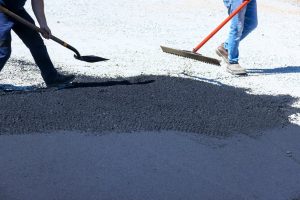
The Pros and Cons of Asphalt Paving
Asphalt’s Budget-Friendly Appeal
Asphalt is an attractive choice for commercial paving projects in Indianapolis, especially when budget is a key consideration:- Cost-effective: Asphalt offers a significant cost advantage, making it ideal for larger projects or businesses with tight budgets.
- Faster installation: Asphalt’s quick and less labor-intensive installation minimizes downtime for business operations.
Flexibility and Climate Adaptability
Asphalt’s inherent flexibility makes it well-suited for Indianapolis’s climate:- Adapts to freeze-thaw cycles: Its elasticity helps absorb ground movement, reducing the likelihood of cracks and potholes.
- Extended lifespan: This adaptability ensures durability in regions with shifting ground conditions.
Maintenance Considerations
While asphalt has notable benefits, it requires regular upkeep to maintain its performance:- Crack sealing and sealcoating: Regular maintenance is essential to prevent water infiltration and deterioration.
- Cumulative costs: These ongoing maintenance tasks can diminish its initial cost advantage.
Challenges with Extreme Temperatures
Asphalt faces some drawbacks in hot climates:- Softens in heat: High temperatures can make asphalt sticky, affecting traction and potentially damaging vehicles.
- Heat absorption: Its dark color absorbs sunlight, raising the surrounding temperature, which can impact outdoor comfort.
Not Sure Which Pavement Is Right for Your Project?
The Perfect Pavement for Your Project
So, what’s the best commercial paving material: concrete or asphalt? The answer depends on your specific needs and priorities. Consider factors like:
- Traffic volume and weight: Opt for concrete for heavy-duty applications.
- Budget: Considering the cost of concrete vs asphalt paving, asphalt is generally more affordable upfront while concrete is more cost-effective down the line.
- Desired lifespan: When it comes to the maintenance of concrete vs asphalt, concrete offers a longer lifespan and potentially lower long-term costs.
- Climate: If Indianapolis's freeze-thaw cycles are a concern, asphalt might be a better fit.
- Downtime tolerance: Asphalt allows for quicker installation with less disruption.
Work With Indianapolis’s Trusted Paving Experts
No matter which material you choose, partnering with a reputable Indianapolis paving company is crucial. Look for a company with experience in both concrete paving in Indianapolis and asphalt paving in Indianapolis to ensure they can provide the best solution for your project. They’ll help you navigate the concrete vs asphalt for parking lot or walkway decision and deliver a high-quality pavement that meets your needs and budget.
Actively planning a commercial paving project? Sipes Asphalt and Concrete would love to help you pave the path to success with a new concrete or asphalt installation!
As Central Indiana’s go-to full-service paving provider, our team provides the highest quality of services with as little downtime as possible. At Sipes, no job is too big or too small. Contact us today to learn more about our superior concrete and asphalt paving, sealcoating, asphalt repair and crack sealing, and pavement striping services!
